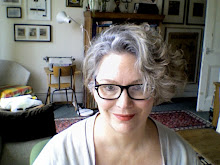the placebo effect: how depressing is it, really?
Or: the truth about great expectations
This week's revelation that placebo pills "work just as well" as the seratonin-uptake-enhancing Prozac family has been a bit of a shocker for anyone putting their faith in the efficacy of modern medicine. I mean, we always knew it was a shibboleth; but where knowing is one thing, and being told is another, this business of being shown seems a step too far!
Or is it?
Inrterestingly, the Boston Globe ran this fascinating piece the day before the SSRI story broke:
"SCIENTISTS AT CALTECH and Stanford... provided people with cabernet sauvignons at various price points, with bottles ranging from $5 to $90... The subjects consistently reported that the more expensive wines tasted better, even when they were actually identical to cheaper wines."
In this instance the scientists were testing the neural responses of the participants, and guess what! Their brains responded differently - that is, physically - to the same wines when they thought they were more expensive. (It doesn't record what was happening with their taste buds. I know to my chagrin what a cheap cabernet can taste like.)
The Globe article continues, rather trenchantly:
"Expectations have long been a topic of psychological research, and it's well known that they affect how we react to events, or how we respond to medication. But in recent years, scientists have been intensively studying how expectations shape our direct experience of the world, what we taste, feel, and hear. The findings have been surprising - did you know that generic drugs can be less effective merely because they cost less? - and it's now becoming clear just how pervasive the effects of expectation are.
The human brain, research suggests, isn't built for objectivity. The brain doesn't passively take in perceptions. Rather, brain regions involved in developing expectations can systematically alter the activity of areas involved in sensation. The cortex is "cooking the books," adjusting its own inputs depending on what it expects."
Now, of course, this is what behavioural therapy is all about, as my darling friend Ms Rational Self-Determinism would be quick to tell us (though I personally think that behavioural therapy is fine as far as it goes). But what about those times when even positive, thinking, exercise, routine, having something to look forward to, etc, can't help us? Don't we need a little something extra to recalibrate the enzymes? (And no, I don't mean that cheap cab sav.)
Hmm. This new research appears to be telling us we don't. It's all there inside us. Even if we can't find it.
Mark Lawson in today's Comment is Free makes the cogent point that, instead of lamenting that SSRI's "don't work" (sic: plainly, according to their users, they do), we should be celebrating the idea that the placebos work just as well:
"Depression, at a basic level, is a loss of belief in the usual ways of getting through the day: habit, optimism, energy, hope. Exercise might be a better solution than drugs, but a bottle of vodka worse. If faith in a pill works, then the confidence trick involved is entirely benevolent except for the false profits of the drug barons. Instead of damning Prozac, we should be cheering placebos."
In other words, we really do respond the way those wine-tasting Californians say we do, and we should be jolly happy about it.
Look at it this way: people can walk through fire and report no pain. Someone I know just ordered Paul McKenna's wait-loss kit, trusting to hypnotism to help her go down a couple of stone. And childbirth groups have long worked on the basis that young women respond better, with fewer physical traumas in labour, if they know what to expect and how it all works.
A careers consultant - not the most hippy-dippy type of professional, I'd have thought - told me just two days ago about the power of "visualising. " The way he put it was this: the brain has a tendency towards normalisation, towards sanity. Whatever your thought patterns are, your brain will say to itself, "this is sanity: this is a reflection of how the world is." He said, if you want to change something, you simply start by telling yourself it's the way you want it to be. You repeat the words to yourself before sleep. You visualise it as a reality, with images and sounds and even smells - just like one of those compelling daydreams you have predicting certain disaster in whatever sphere of your life, only this time you put the energy into daydreaming something you actually want, not fear. And you conjure up a positive emotion to associate with it. He says after several weeks of this your brain will start to rebel at the disjuncture between what you tell yourself and how you behave, and your behaviour will fall into line with what your brain now perceives - critically - as its expectations.
His example was a person wanting to, say, lose weight or stop smoking, but you could use it for any situation I suppose.
This in itself, as I told the nice man, is very like a party game we were doing on New Year's Eve, called Cosmic Ordering, where you write a letter to the cosmos telling it what you expect it to deliver to you in the coming year. Ideally you write it and give it to someone else to hold, and just forget about it: the work in your unconscious is done. Apparently this is not like a letter to Santa: you don't have to promise to be good. Better in fact if you don't, because it's not about hoping for it, it's about simply expecting it.
Failing that, you could read one of the rash of recent articles all about how depression is good for you. Or you could just stay on the Prozac: after all, it works just as well as a placebo.































